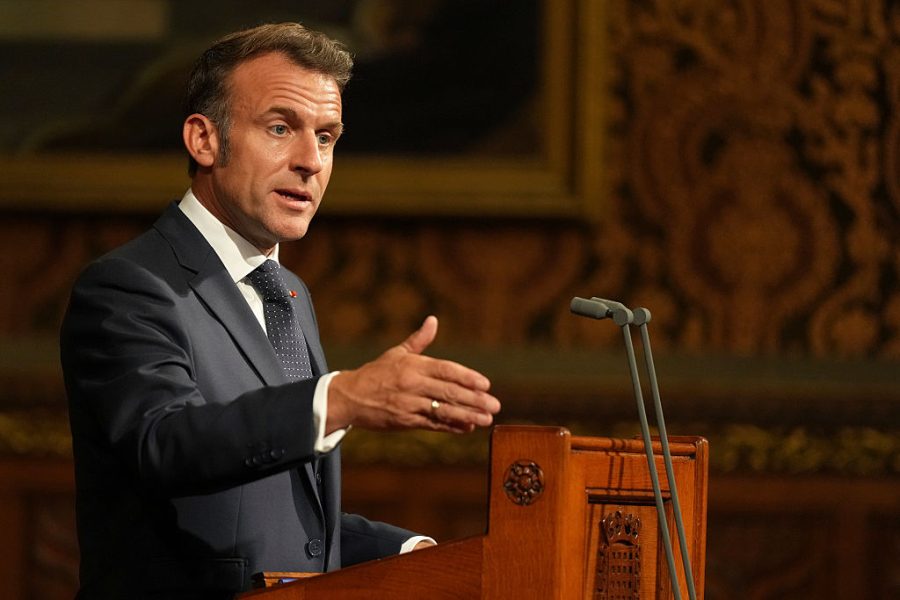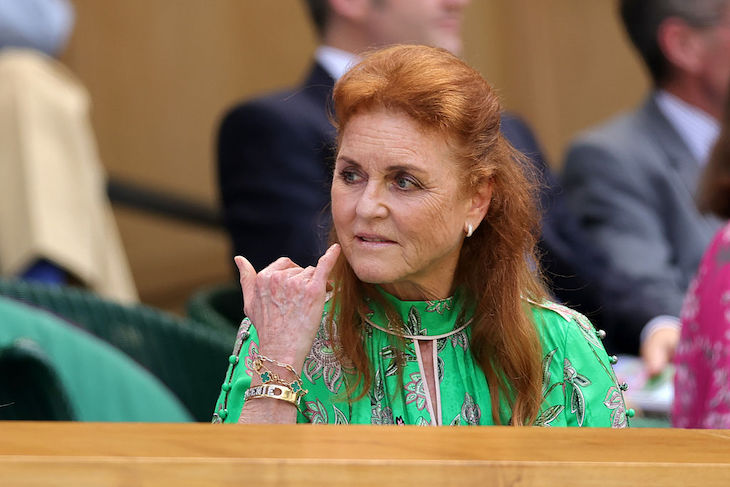The French have so far been underwhelmed by Emmanuel Macron’s state visit to Britain. The late Queen was universally admired on the other side of the Channel. Less so Charles, who in the eyes of the French lacks Elizabeth’s grandeur and wisdom.
There are also more pressing issues, such as the spreading wildfire that has covered the city of Marseille in a cloud of smoke and ash. Then there is the news, splashed across this morning’s Le Monde, that the poverty rate in France has reached 15.4 per cent, the highest level since records began in 1996. Furthermore, the gap between the wealthiest and poorest 20 per cent has increased to levels not seen for half a century. Macron, ‘the president of the rich’, as he is nicknamed, couldn’t have chosen a worse time to rub shoulders with British royalty.
Both Britain and France have lost control of their borders
Macron, of course, is spinning the state visit as crucial at a time of great global uncertainty. In a message posted on X yesterday, the president described Britain as ‘a strategic partner, an ally, a friend. Our bond is longstanding, forged by History and strengthened by trust’. The aim of the visit, he continued, was to:
Address the major challenges of our time: security, defence, nuclear energy, space, innovation, artificial intelligence, migration, and culture. These are all areas in which we seek to act together.
Macron elaborated on these themes yesterday afternoon when he addressed members of both houses of the UK parliament. The president said that Europe should wean itself off ‘excessive dependencies on both the US and China’; he vowed that ‘Europeans will never abandon Ukraine. Never’; and on the question of the conflict in Gaza he declared his belief ‘in the future of the two-state solution as a basis for regional security architecture’.
As for the migrant crisis, the issue that preoccupies the majority of the French and British electorates, Macron recognised that ‘hope for a better life elsewhere is legitimate’. However, he continued, ‘we cannot allow our countries’ rules for taking in people to be flouted and criminal networks to cynically exploit the hopes of so many individuals with so little respect for human life’. It had become a ‘burden’ to both countries.
With that in mind, announced the president, Britain and France will ‘address irregular migration with humanity, solidarity and fairness.’
Macron’s state visit to Britain is the first by a French president since Nicolas Sarkozy in March 2008. He also addressed parliament and, like Macron, exhorted Anglo-French cooperation on ‘the battle against climate change, energy, immigration, development, security and defence and the reform of the common policies’.
Sarkozy said that ‘the United Kingdom wants a Europe which is capable of controlling immigration. France wants this too’. He was true to his word. In 2007, there were 163,903 illegal border crossings detected in the EU, a figure that had fallen to 104,600 in 2009. Europe appeared to be mastering control of its borders.
But then came the Arab Spring in 2011, the toppling of Colonel Gaddafi in Libya, the Syrian civil war and the open invitation issued by Germany’s Angela Merkel in 2015. In that year, the number of illegal border crossings into Europe reached 1.8 million.
In the decade since, Europe’s attempt to police its borders has been chaotic, and arguably the two countries that have suffered most from the consequences of mass uncontrolled immigration are Britain and France. Socially, economically and culturally, they are struggling to cope, which explains the popularity of Nigel Farage and Marine Le Pen.
Polls consistently show that an overwhelming majority of voters want tougher border controls but they have been repeatedly gaslighted by their leaders. Macron is the most culpable.
His rhetoric to parliament on Tuesday had echoes of his first major speech as president in September 2017. Addressing an audience at the Sorbonne, Macron said irregular migration was a ‘burden’ on Europe and it must be tackled firmly but with ‘humanity’. His ambition in the coming years was a ‘European border police force to gradually be put in place to ensure rigorous management of borders across Europe and the return of those who cannot stay’.
That never materialised, and under Macron France has experienced record levels of legal and illegal immigration. So has Britain. Both countries have lost control of their borders, and whatever Macron and Starmer announce on Thursday at their summit, it is unlikely to reverse that trend.
Yesterday, the pair paid their respects at the statues of Winston Churchill and Charles de Gaulle. ‘When everything was falling apart, two men stood up,’ posted the president on X. Everything feels like it is once more falling apart in Britain and France – but this time there are no great men to rise to the challenge.








Comments